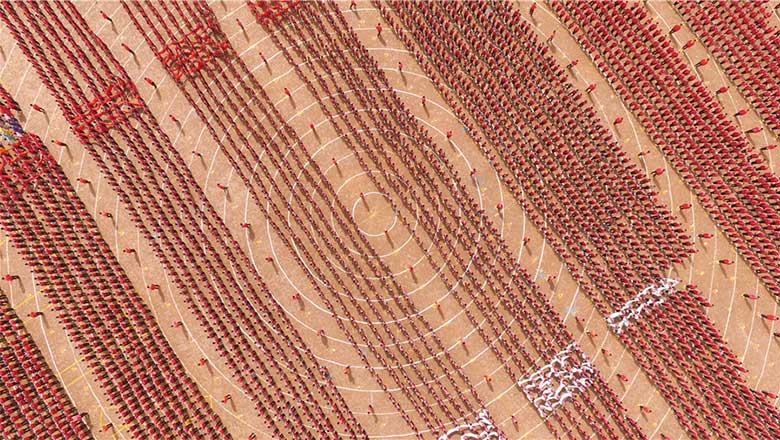In policy shift, China to store less corn
Updated: 2016-04-07 11:26
By Paul Welitzkin in New York(China Daily USA)
|
||||||||
It's not clear yet if China's shift in corn policy will affect the global corn market, although some believe it may result in fewer imports of corn substitutes such as barley and sorghum to the country.
China said last month it will move away from stockpiling corn and start selling its huge inventory in a bid to improve agricultural efficiency.
"We hope the new reform will let the market play more of a role in the formation of prices," Liu Xiaonan, deputy director of the National Development and Reform Commission, told Reuters.
Fred Gale, an agricultural economist at the US Department of Agriculture, said the change is part of a general shift toward a policy in which the government allows prices to be set by market forces.
"Instead of manipulating prices to support farmers, the government will give them subsidy payments and overhaul the agricultural sector to make it more efficient," Gale wrote in an e-mail.
Gale said a massive surplus of corn in China has forced the government to stockpile large amounts of the last four corn crops.
"Because China's corn prices are so much higher than world prices and demand for corn is down, feed mills have been importing cheaper substitutes for corn. There is not enough space to store the grain," he said.
The effects on the global market are indirect according to Gale. "China can't subsidize corn exports and it limits imports of corn with a quota, so it's insulated from the world market to some degree," he added.
Gale said China receives most of its corn imports from the Ukraine (3.9 million metric tons in 2015). "China has already cut back on imports of corn from the United States," he said.
Last year the US exported 550,000 metric tons of corn to China out of total exports of more than 44 million metric tons.
Gale said the policy change may mean a decline in imports from the Ukraine. Indirect effects will be a decline in China's import of corn substitutes such as sorghum, barley, distillers grains and cassava.
"Last year, the combined total of China's imports of these was about 38 million metric tons. As Chinese corn prices fall, imports of these commodities will fall too," noted Gale.
paulwelitzkin@chinadailyusa.com
- Xi: Talks 'only correct way' for China, ROK
- Xi to Obama: Disputes should be managed
- Cypriot court remands in custody man suspected of hijacking EgyptAir flight
- Govt eyes luxury tourists amid concerns over safety
- Sleep tight and don't let sharks bite at Paris aquarium
- Aung San Suu Kyi appointed as Myanmar's new foreign minister

 Slogans for family planning need to be updated
Slogans for family planning need to be updated
 26,000 Kung Fu students form huge patterns
26,000 Kung Fu students form huge patterns
 Chinese arts prove popular in Hong Kong spring sales
Chinese arts prove popular in Hong Kong spring sales
 Reindeer Herders Day celebrated in northern Russia
Reindeer Herders Day celebrated in northern Russia
 World's major tech companies step into the VR world
World's major tech companies step into the VR world
 Skilled man gives new life to antiques
Skilled man gives new life to antiques
 Top five car-hailing apps in Chinese mainland
Top five car-hailing apps in Chinese mainland
 Shanghai builds 'Deep Pit Hotel' upon a former mine
Shanghai builds 'Deep Pit Hotel' upon a former mine
Most Viewed
Editor's Picks

|

|

|

|

|

|
Today's Top News
Marriott unlikely to top Anbang offer for Starwood: Observers
Chinese biopharma debuts on Nasdaq
What ends Jeb Bush's White House hopes
Investigation for Nicolas's campaign
Will US-ASEAN meeting be good for region?
Accentuate the positive in Sino-US relations
Dangerous games on peninsula will have no winner
National Art Museum showing 400 puppets in new exhibition
US Weekly

|

|







